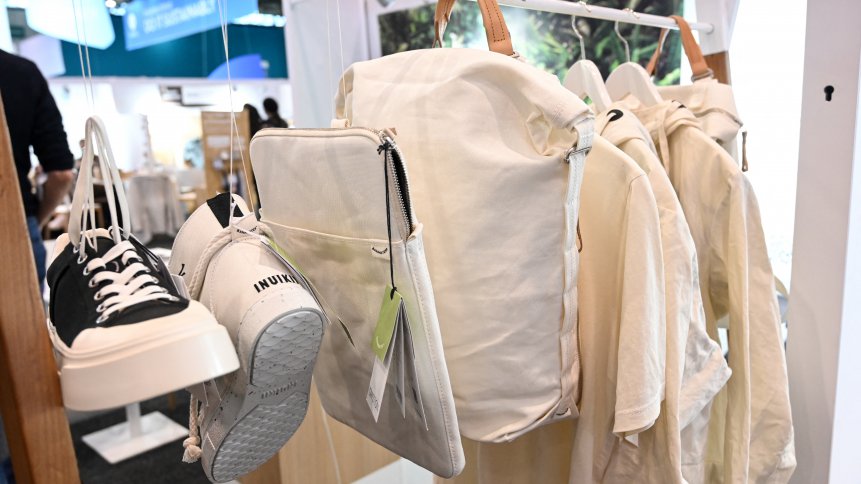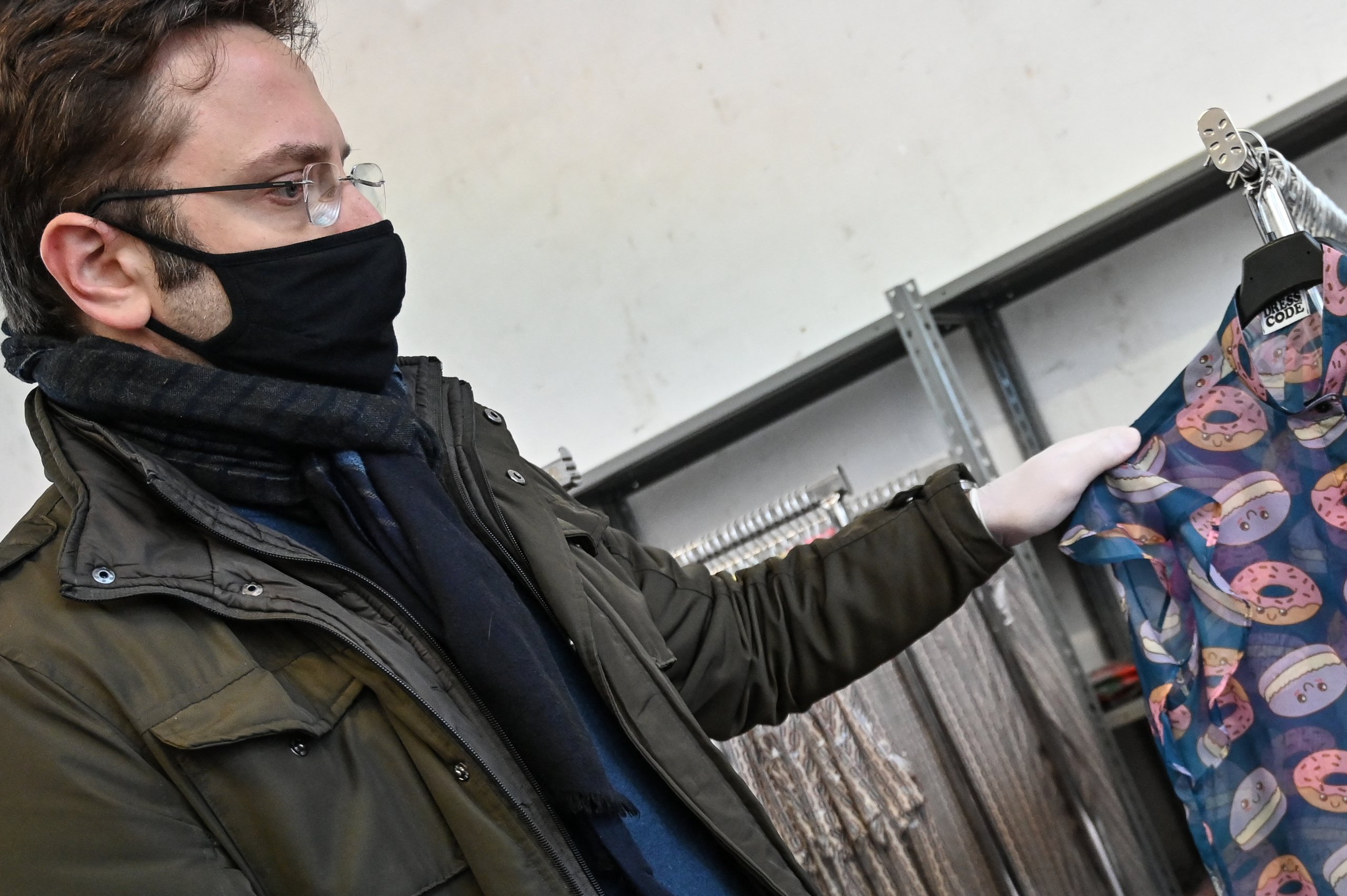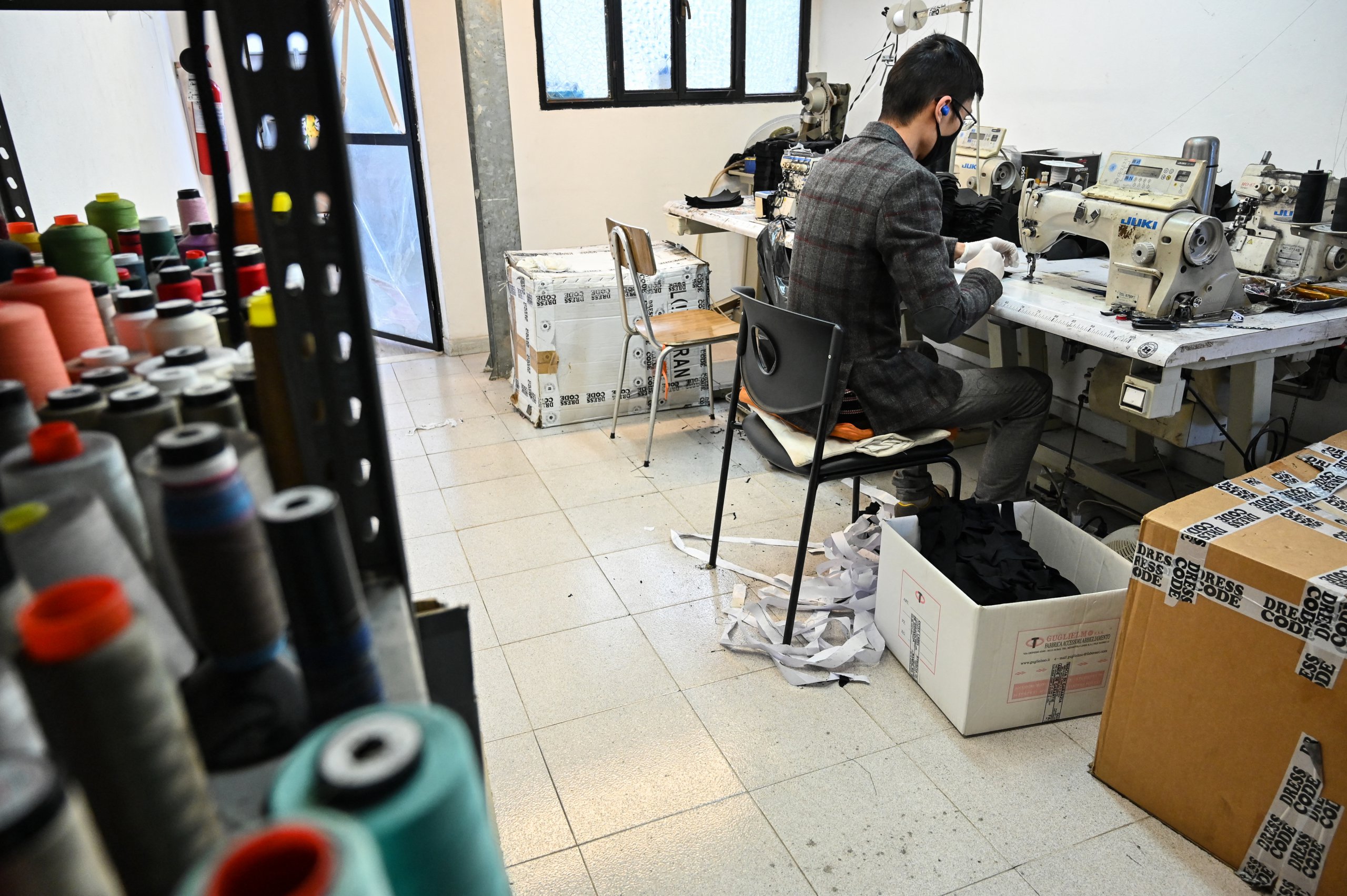Advanced tech is putting the ‘fast’ in faster fashion fulfillment

Successful fashion retailing is all about maximizing margin, growing sales volume, and getting faster throughput. But for the last two years, omnichannel businesses have, by necessity, had to rely on their e-commerce channels for survival. The strain on fulfillment centers has been enormous, particularly as ‘single’ and ‘few’ item picking and packing operations are traditionally highly labor-intensive activities – and labor has become a scarce and costly resource, leading to concerns over performance during critical peak periods.
Now that consumers are returning to the high street, how can businesses re-balance their fulfillment operations to cope with growth and higher throughput across all channels, and at the same time contain costs to maximize margins? In addition to the challenges of finding labor, the National Living Wage in the UK is set to rise from £8.91 to £9.50 per hour in April 2022, coinciding with a hike in National Insurance of 1.25p in the pound for both employers and employees.
With operational costs rising and fewer people available to carry out manual picking operations, many retail fashion businesses are turning to the use of automation to boost productivity of their labor force. Automation applied to the right processes can free up people for tasks that require human ingenuity, judgment, and manual dexterity – tasks such as packing and inspecting returns.
Advanced technology
An innovative technology helping to transform operational performance in the fulfillment center, freeing-up human resources for value-adding activities, is the pouch sorter. Overhead pouch sortation systems offer a flexible and highly scalable, conveying, sorting and dynamic buffering solution appropriate for both fulfilling e-commerce orders and assembling store-friendly sequenced replenishment. One pouch system is capable of sorting and processing many thousands of orders an hour, with each pouch able to carry both hanging garments and flat items, such as shoes and flat-packed goods, enabling fast order fulfillment from a single pool of inventory.

Co-owner of women’s clothing supply company “DressCode” Andrea Vernaglia, looks at remaining clothes undelivered to customers at the company’s worshop in the outskirts of Rome. (Photo by ANDREAS SOLARO / AFP)
Creating a single pool of inventory from which store replenishment and e-commerce orders are served offers significant financial and operational benefits. Efficiencies in accessing available stock, greater flexibility in allocating stock to maximize sales, and faster processing times for preparing orders are just some of the key advantages.
In particular, pouch technology lends itself to e-commerce operations, allowing for greater wave picking efficiency, with late order cut-offs of around 10pm for a promise of delivery to the customer first thing the next day. With processing speeds of up to 25,000 units per hour, Ferag’s ultra-fast automated pouch sorter solution, Skyfall, can pick, sort, pack and dispatch orders within the shortest time window, giving fashion brands the keen competitive edge of a late cut-off with an early next-day delivery.
For consumers fast, reliable fulfillment and delivery is often a decisive factor when purchasing a fashion item and a positive experience is likely to result in repeat sales and recommendations on social media. However, a late delivery has the potential to cause great distress and may lead to negative reviews, with the loss of future sales, so a reliable fulfillment process is essential. Of course, pick accuracy is important too, as a wrongly-picked item is likely to be disappointing for the customer, as well as costly to the business. However, automation enables exceptionally high pick accuracy.
Store friendly sequencing
As stated earlier, the same high-speed Skyfall pouch sorter system used for fulfilling e-commerce orders can also be deployed to create store-friendly sequenced consignments for high-street shops – pulling from the same, pooled inventory. The benefit of sequencing products for a particular store’s layout is that the shop assistant assigned to replenishing shelves and rails is able to perform the task quickly and efficiently, freeing them to spend more time with customers – potentially, to secure more sales.
An obvious advantage of a high-speed pouch solution, such as Ferag’s Skyfall, is that it uses available overhead space – the third dimension of the building – keeping floor areas free for pedestrians and other processes. What’s more, pouch systems are a highly cost-effective alternative to other forms of goods-to-person automation, like multi-shuttle and mini-load solutions, that can cost up to 30% more.
Then there is the core benefit that the Skyfall overhead pouch system undertakes high-speed sorting, conveying and buffering processes too, which with Ferag’s modular conveyor technology allows for tremendous flexibility and scalability. And as the pouch has the ability to carry flat items, such as shoes, and flat packed goods along with hanging items, there is no need to have a separate cross-belt sorter for flat items, with all the issues associated with bringing flat and hanging items together.
Leaders in faster fashion
A number of leading fashion brands are taking advantage of pouch sorter technology to increase capacity and boost the performance of their fulfillment operations. Ferag has developed an advanced automated induction process where pouches automatically open at an induction station, the operator scans a product, passes it down a chute and it drops into the awaiting pouch. The process is fast and efficient.

A worker sews a face mask with Nonwoven fabric “DressCode”, a company that used to manufacture clothes, has changed its production for protection masks against coronavirus, not for medical use, producing almost 1000 masks per day. (Photo by ANDREAS SOLARO / AFP)
Similarly, Ferag also introduced auto-unloading technology with three levels of performance, depending upon product characteristics and gentle handling requirements. Contingent on the items, between 1500 and 2200 orders per hour can be automatically unloaded from pouches at packing stations. Driving performance, the rate at which orders are presented at the packing station can determine the pace of packing.
Faster fashion returns
When it comes to the fast processing of returns, overhead dynamic buffers can offer a cutting-edge solution to removing the time, cost, and effort of placing returned items back into stock. Manually sorting and placing items back into stock is a very time-consuming and costly process, but now it can be avoided.
For high-demand fashion products, keeping returned items in a buffer close to the packing area enables a quick and efficient re-despatch of the item. In fact, some retailers anticipate and predict levels of returns, allowing them to re-sell items even before they are returned to the warehouse. Such techniques help boost sales and increase margins.
Of course, reliability is absolutely critical for any automated system. Failure to perform at peak or during critical promotional periods can result in unfulfilled SLAs and dissatisfied customers, which in turn may damage both sales and, importantly, brand. Businesses looking to invest in overhead pouch sortation systems should look very carefully at the quality of the engineering, materials, and components used. Only ultra-low friction components should be considered and plastic chains should be avoided. Good design and sound engineering bring long-lasting rewards.
Ferag’s Swiss-engineered pouch sorter technology was originally developed for some of the most testings of handling applications, the international print industry, where super-fast overhead conveyors are required to offer ultra-reliable performance on daily newspaper production runs in the millions. The same materials, technology, and design expertise have been successfully applied by Ferag within the intralogistics sector, bringing reliable, high-performance conveying at speeds of up to 25,000 units per hour to fashion businesses the world over.
Article contributed by Darcy de Thierry, Managing Director of Ferag UK









